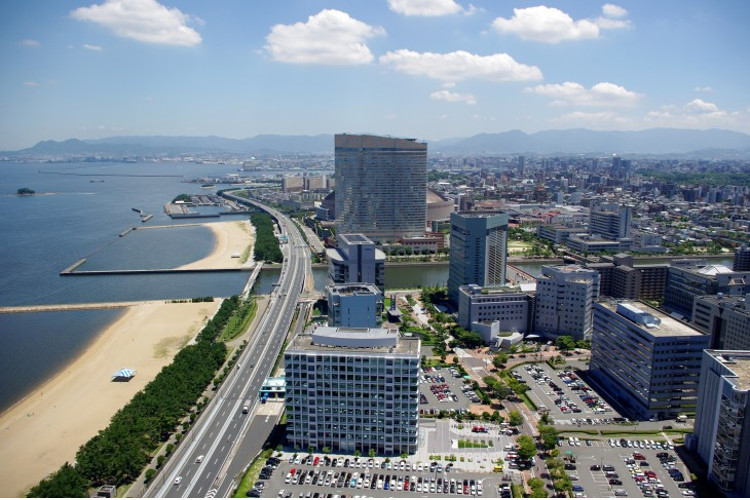
Study in Japan
A Developed Economy and Advanced Technology:
Japan is an economically-developed country with advanced scientific technology. People in universities and businesses carry out innovative basic and applied research every day, and countless new technologies and theories are being developed and put to use. This scientific technology and academic theoretical work are the tools that support peoples’ lives and society all over the world.
A variety of high level education is practiced, which forms the social foundation of Japan. There are over 700 universities or colleges in Japan. The number of vocational colleges in Japan is close to 3,000. The kinds of learning that are available ranges from traditional academic fields like law, economy, engineering, and science to modern disciplines in fields like environmental studies, information, and tourism, and even fields such as animation or computer game production.
A Unique Culture and Internationalism:
Japanese language and culture has its own uniqueness. However, if you come and live surrounded by Japanese culture, you will find that was first seems special or strange has an origin that provides a reason for being the way it is. It is such cultural origins that serve as the common foundation which links the people of the world together.
Studying in Japan provides you with not just advanced and specialized knowledge, but opportunities to learn about Japanese language and culture as well. Such experiences can deepen your understanding of your own language and culture in addition to a greater understanding of the world. These kinds of multi-cultural experiences during your time studying abroad will shape who you are and who you will become.
Supporting Your Dreams:
After their study in Japan, many students go on to play active roles in companies related to Japan or Japanese companies both in Japan and in their home countries. Based on our surveys of overseas study participants, we found that those students felt that their time studying in Japan was an immeasurably valuable experience.
Finding success from study in Japan is not a dream that easily comes true for many. However, if you can work towards your dream through the stresses brought by an unfamiliar culture and the joys of new discoveries, it is a dream that will come true.
Challenge yourself to come study in Japan, and you will surely realize your dreams.




The Length of Your Study Abroad Plan:
The longer you study in Japan, the more fluent your Japanese will become and the more you will become more acclimated to Japanese customs and ways of thinking. However, longer stays also cost more in terms of tuition and living expenses. When planning to come to study in Japan, it is important to have a reasonable budget in mind. Let’s divide study abroad programs into 3 types: short-term (from several months to one year), medium-term (two to three years), and long term (over three years).
For short–term plans, you could make use of the exchange agreements between universities. If you are university student in your own country, it is recommended that you take part in such programs. If you have graduated from university, you could study in a Japanese graduate school for six months to one year as research student. Depending on your major, Japanese ability may not be necessary.
If you were not a college student in your own country, it is better for you to focus on Japanese language learning as the purpose of your short-term study abroad plan. By learning Japanese in a special course of a university for one year, it is possible for you to live and participate in Japanese society. Shorter programs offer Japanese study at a language school for six months, or participation in Japanese lectures over a summer to master basic Japanese. For applicants who have advanced Japanese language ability, study for six months to one year at a graduate school as an auditor is possible.
For medium-term plans, there are ways to enter a vocational school or college after one year of study in a Japanese language school. Students with such plans should set a goal for their one year’s study in a Japanese School, such as passing the N2 level of the Japanese Language Proficiency Test. Search for Japanese schools that offer that kind of curriculum.
There are master’s programs that use English. If you can follow lectures in English, there is no need to learn Japanese in order to acquire a master’s degree.
There are lots of ways for applicants to study long-term in Japan. Those who have completed a university undergraduate program in their own country could enter into master’s course or graduate school as a researcher after studying in a Japanese language school for one or two years. Students with advanced English ability could enter directly into a master’s course or doctoral course where lectures are taught in English. On the other hand, students who have not graduated from a university could enter into undergraduate course after studying in Japanese schools for one or two years, and then spend four years in an undergraduate program to get their bachelor’s degree. Alternately such students could also choose to study two years in vocational schools to acquire specialized qualifications.
Do Not Rely on Part-time Job Earnings:
One characteristic of studying in Japan is that foreign students can have part-time jobs and work for up to 28 hours a week (up to 8 hours a day during school breaks in summer and other seasons).
However, living expense and tuition in Japan cannot be covered by part-time job wages. It is almost impossible to find employment without Japanese language skills, and there is no guarantee you will be able to find a part-time job within the limits established by the law. Students who take part-time jobs have to keep in mind their study schedule, and that they may have to quit to focus on writing their graduation thesis or go job-hunting.
Therefore, students should not consider part-time job earnings in their financial plans for paying tuition and living expenses. Part-time job earnings can be considered spare funds to use for one’s future.
Scholarship and tuition fee waivers should be considered in the same way. You should not come to Japan if you cannot afford all the expense without a scholarship or tuition fee waiver. Please make a plan so that any scholarships and tuition fee waivers will provide spare money for living in Japan.
Types of Schools in Japan
You can choose to study at a Japanese language school, a vocational school, a junior college, an undergraduate course, a master’s course or a doctoral course in Japan. This web site explains admission requirements, admissions schedules, periods of study, and so on. For further details, please refer to each school’s information.
Japanese Language School:
Japanese language schools are places where you can start learning Japanese from the beginner level. There are courses only for Japanese learning, as well as courses for students to go to higher stage of education, such as at vocational schools, colleges or undergraduate courses. In such preparatory courses, subjects other than Japanese, such as general subjects and science are taught. There are several courses available at each language school, so it is recommended to choose a course which serves your purpose for studying in Japan.
A degree will not be awarded upon completion of a language school program. However, the certification of completion of the language school or Japanese language proficiency test results for the N1 or N2 levels will be helpful in your future for getting jobs and going on to other schools.
Vocational Schools:
After graduating from senior high school, vocational school will be a good choice to learn the knowledge and techniques related to your future occupation. Completion of 12 years’ school education is essential for applying. In most cases, graduation from vocational school is during two years. Classes start in April. 90% of courses in vocational schools grant students a qualification which is called “Senmonshi”, which means “specialist”. With this Senmonshi qualification, even people who had not completed an undergraduate course in their home country meet the requirements made by the Immigration Bureau for working in Japan. Major fields of vocational schools are: Medical, Industrial, Commercial business, Hygiene, Education, Social Welfare, Fashion, Home economics, Agriculture and Japanese Language.
Junior Colleges:
The purpose of junior colleges is to conduct in-depth learning and research in specialized disciplines and to develop the abilities necessary for employment and daily life. The term of study is two or three years (In the field of Medical Techniques and Nursing, it takes three years to graduate) and graduates are awarded an associate degree. With the associate degree, even people who had not completed an undergraduate course meet the requirement made by the Immigration Bureau for working in Japan.
Undergraduate Courses:
The purpose of universities, as centers of advanced learning, is to provide students with wide-ranging knowledge and to provide in-depth teaching and research in specialized academic disciplines. The term of study is four years (six years for medicine, dentistry and veterinary medicine). Graduates are awarded a bachelor’s degree. With a bachelor’s degree, the requirement made by Immigration Bureau for working in Japan has also been fulfilled.
Traditionally, departments of Humanities, Education, Law, Economics, Engineering, Science, Medical, Agriculture, and Art have been established in Japanese universities. Sociology and Business departments are also traditionally available. On the other hand, departments with a name including the terms “international”, “environment”, “human” or “tourism” represent newly established programs.
Graduate Schools:
A university may also establish a graduate school offering master’s courses (two-year standard term of study), doctoral courses (five-year standard term of study, and four years for medicine, dentistry and veterinary medicine), or professional degree courses (two-year standard term of study; however, depending on the field, in some cases courses can take between one to two years, or more than three years). Those who have completed the graduate course are awarded either a master’s, doctoral, or professional degree. Please note that there are no master’s courses in the departments of medicine, dentistry or veterinary medicine. Only doctoral courses are available, and the shortest period for graduation is four years. Applicants who completed 16 years’ education can apply for master’s courses while applicants who completed 18 years’ education can apply for doctoral courses. In addition, it is recommended for applicants who do not meet these educational requirements to make inquiries as early as possible. This is because the screening process for those applying on the merits of their practical business experience takes a long time.
Foreigners in Japan with a master’s degree or doctoral degree can work not only in Japanese companies, but do research work in Japanese universities as instructors or researchers as well.
Graduate School Research Students:
There is an original research student system in Japanese graduate schools separate from master’s or doctoral courses. Research students register at a graduate school, participate in lectures, accept instruction from professors and make use of university’s facilities. However, these research students cannot receive a degree.
In most of the cases, the admission for research student is screening candidates by examining their academic records and other submitted documents. Furthermore, it is possible for applicants to use Method C. By using Method C, applicants could come to Japan as research student and learn both Japanese and knowledge of their major field, and then take the entrance examination of the master’s or doctoral course.
Qualified applicants applying for research student status should have completed an undergraduate course in their home country. Some private universities require that only applicants who have completed a graduate course have the qualification to apply as a research student. The period of a research student course is six months. The period can be extended if permission from an instructor is granted.


